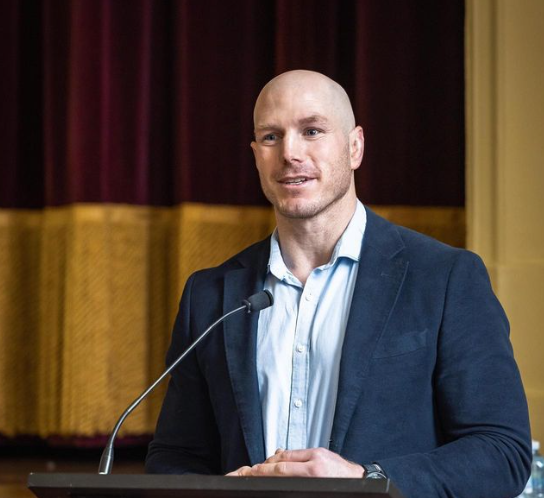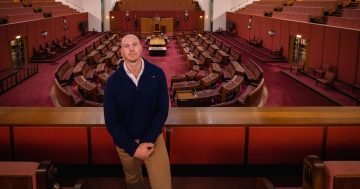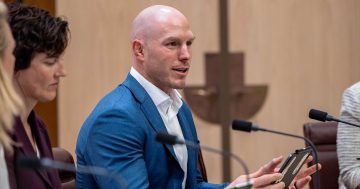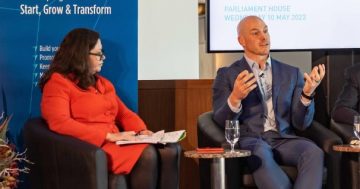
Senator David Pocock says the federal and ACT Labor governments haven’t produced results for the ACT. Photo: Supplied.
Independent senator David Pocock has used a tourism forum appearance to take a major swipe at federal and local Labor governments, suggesting that, if anything, federal investment in the Territory had gone backwards under the Albanese government.
With a federal election in the offing – ACT senators are elected on the same cycle as House of Representatives members – Senator Pocock took aim at a lack of meaningful federal investment in Canberra and the local government’s failure to plan ‘shovel-ready’ projects for joint funding.
“The ACT doesn’t have projects that are good to go except for light rail,” he told the ACT Tourism Leaders’ Forum.
“We still don’t know, after two decades, where [the new] convention centre will be rebuilt. We’re on our seventh feasibility study for the stadium and there is serious work to do at the local level.
“But it’s been a real frustration in Senate estimates when you see the kind of money flowing to other jurisdictions and then ask them, did the ACT Government ask for money? And the response is, not in this round,” he said.
Senator Pocock said the agreements and funding corpus received by the ACT stood in stark contrast to other jurisdictions. Under individual city deals, $9 billion went to states and territories while the ACT received “not a cent”.
While Minister for Infrastructure, Transport, Regional Development and Local Government Catherine King has said exceptions could be considered, the only ACT project to receive support thus far was light rail, for which the funding deal was a 50/50 Commonwealth split.
Senator Pocock said that given the “severely limited” revenue base available to the ACT Government, the Commonwealth must invest more in a city that is both the national capital and a major regional hub.
“We’re seeing things like Canberra United, one of our great women’s teams, in crisis,” he said.
“My understanding is this is a funding shortfall of a few hundred thousand [dollars].
“Part of the issue is the men’s A League team is being held up by not having a plan for the stadium. As an independent trying to work out how we can sort this out, it’s frustrating … when we shell out millions for GWS to come and play a few games here.”
A voter survey from Senator Pocock’s office found 83 per cent of respondents believed it was important or very important for the ACT to receive a greater share of federal funding to address major issues, including hospitals, mental health care, and social and affordable housing.
“There is a real frustration at the lack of investment in us as a city,” he said.
Senator Pocock said housing is a key issue for constituents, but the number of local applications for the Housing Australia Future Fund investment, pushed through by independents and cross-benchers, was “abysmal” because the ACT Government did not yet have a plan for sufficient land releases or concessional deals with land prices and rates.
“People spend years on the social housing waiting list,” he said, noting that Canberra continues to be the second most expensive city to buy a home in Australia.
Asked whether independents were the answer to political problems, Senator Pocock said independents in federal parliament raised issues that were “politically inconvenient” for major parties.
“The number of times we get someone on the phone asking for advice, saying they’ve rung 12 MLAs who are not answering, you’d hope we get people who are there for the right reasons, not career politicians,” he said.
“I’m accountable to Canberrans – if I don’t deliver, they’ll go back to the major parties and find someone else”.


















